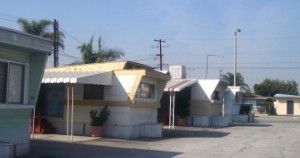Study: 28% of CA elderly impoverished
 In 2012, after many years of being urged to develop more sophisticated measures of wealth and prosperity, the U.S. Census Bureau began issuing an annual 50-state review of poverty that incorporated cost of living. California shot from the middle of the pack to being to by far the biggest center of poverty in America, with more than 23 percent of residents struggling to pay for basic expenses.
In 2012, after many years of being urged to develop more sophisticated measures of wealth and prosperity, the U.S. Census Bureau began issuing an annual 50-state review of poverty that incorporated cost of living. California shot from the middle of the pack to being to by far the biggest center of poverty in America, with more than 23 percent of residents struggling to pay for basic expenses.
Now a new UCLA study finds that of the 4 million adults in California who are 65 or older, 1.11 million struggle to make ends meet — an effective poverty rate of 28 percent. That’s more than triple the number of California elderly who were considered impoverished under standard federal measures. This is from the KPCC/PBS report:
More than 770,000 seniors in California aren’t making enough to get by but aren’t considered poor by the federal government, according to a UCLA health policy study that is challenging the definition of poverty. …
According to the study, about 340,000 Californians 65 years or older are considered poor based on the Federal Poverty Level, which makes them eligible for public assistance programs.
But in an analysis of 2009-2011 U.S. Census data, the researchers concluded that about 772,000 more seniors in the state could use the help but aren’t considered poor enough. She calls this group the “hidden poor.”
“They don’t have enough income to meet a minimally decent standard of living,” said study lead author Imelda Padilla-Frausto, a graduate student researcher at the Center for Health Policy Research.
‘Hidden poor’ in trailer parks fight for rent control
 As with the jump in overall poverty rates in the 2012 alternative Census Bureau statistical review, elderly poverty rates are much higher than previously thought because of the high cost of living. UCLA explains its approach in its study:
As with the jump in overall poverty rates in the 2012 alternative Census Bureau statistical review, elderly poverty rates are much higher than previously thought because of the high cost of living. UCLA explains its approach in its study:
Economic security requires that older adults have sufficient income to pay for basic housing, food, transportation, health care, and other necessary expenses. The Elder Index is an evidence-based approach that identifies the actual costs of those basic needs at the county level for renters, homeowners with a mortgage, and homeowners without a mortgage. …
Of the 4 million older adults age 65 and over in California in 2011, one out of three (38.4 percent) was part of an older couple living alone, one out of four (27 percent) was a single elder living alone, one out of 20 (5.5 percent) was part of an older couple housing adult children, one out of 30 (3.6 percent) was a single elder housing adult children, and less than 1 percent were grandparents raising grandchildren without the parents present.
A primary cause of economic insecurity among the elderly is their reliance on fixed incomes that can’t handle sudden increases in housing costs. This explains why trailer park communities with rent controls — and many renters among the “hidden poor” — are often involved in intense political fights in local governments.
California has nearly 5,000 trailer parks with nearly 1 million residents, according to a 2011 TIME report about trailer park owners’ war on what cities call “rent stabilization agreements.”
According to a website that offers resources to trailer-park residents in disputes with their landlords, 97 local governments around California put limits on how much rates can go up each year, from Alameda County to Yucaipa.
Elderly trailer-park voters are often eagerly courted by local politicians. They vote at higher rates than younger residents and form coalitions with other groups that have lost favor with city hall. In Oceanside, for example, trailer park residents and public safety unions have long fought with business interests and conservative Republicans for control of the City Council.
Chris Reed
Chris Reed is a regular contributor to Cal Watchdog. Reed is an editorial writer for U-T San Diego. Before joining the U-T in July 2005, he was the opinion-page columns editor and wrote the featured weekly Unspin column for The Orange County Register. Reed was on the national board of the Association of Opinion Page Editors from 2003-2005. From 2000 to 2005, Reed made more than 100 appearances as a featured news analyst on Los Angeles-area National Public Radio affiliate KPCC-FM. From 1990 to 1998, Reed was an editor, metro columnist and film critic at the Inland Valley Daily Bulletin in Ontario. Reed has a political science degree from the University of Hawaii (Hilo campus), where he edited the student newspaper, the Vulcan News, his senior year. He is on Twitter: @chrisreed99.
Related Articles
CA Supreme Court allows only union protests on private property
Dec. 28, 2012 By John Seiler In civics and law classes, we’re taught that the court system is “objective” and
‘Unemployed’ Protected From Employers
Katy Grimes: The state is trying to prevent employers from legally looking into the employment backgrounds of job applicants. A
CA's richest company sees smartphone future more clearly than critics
I am not an Apple cultist. I like the Silicon Valley icon, California's richest company, a great deal and agree



